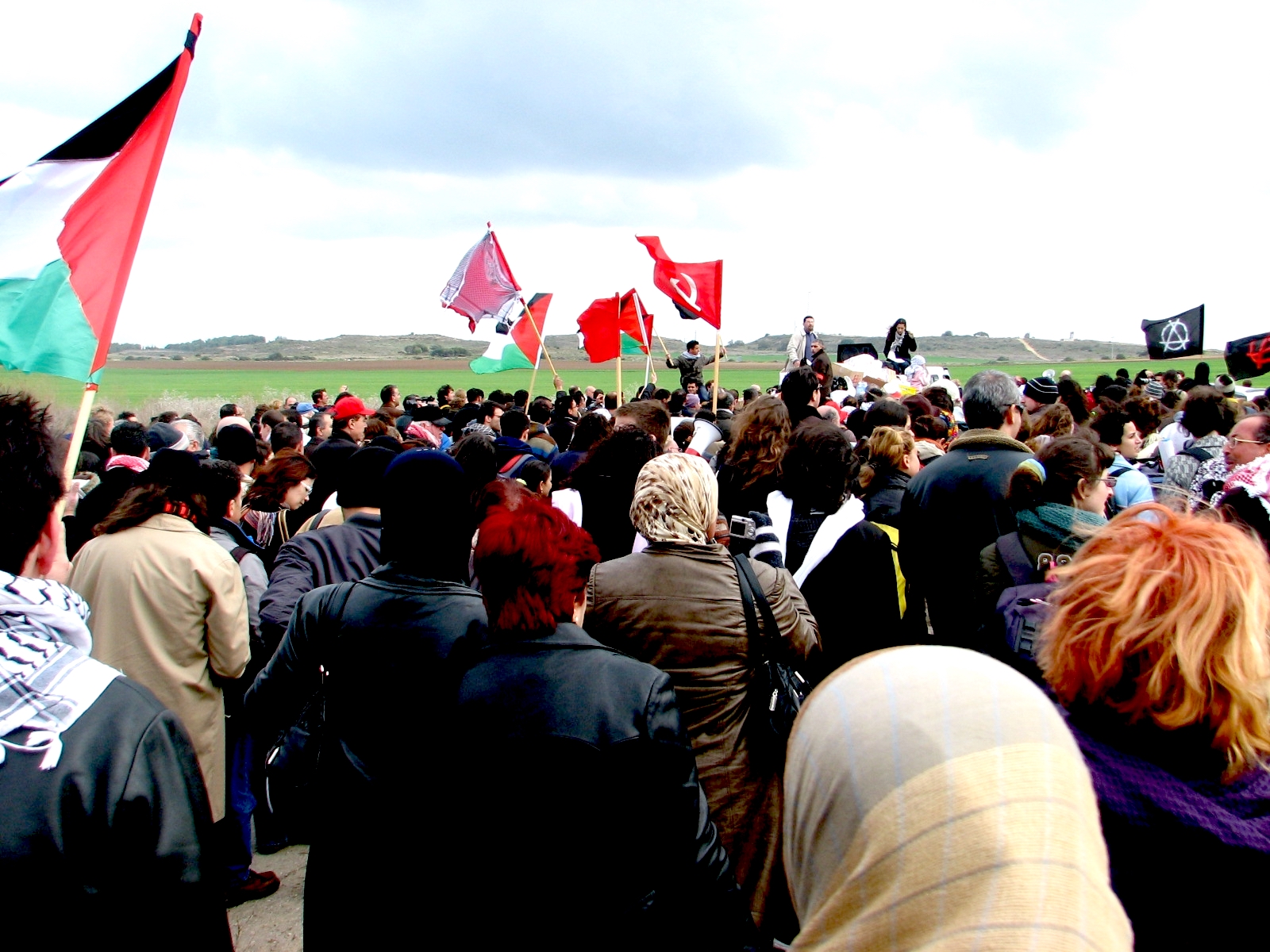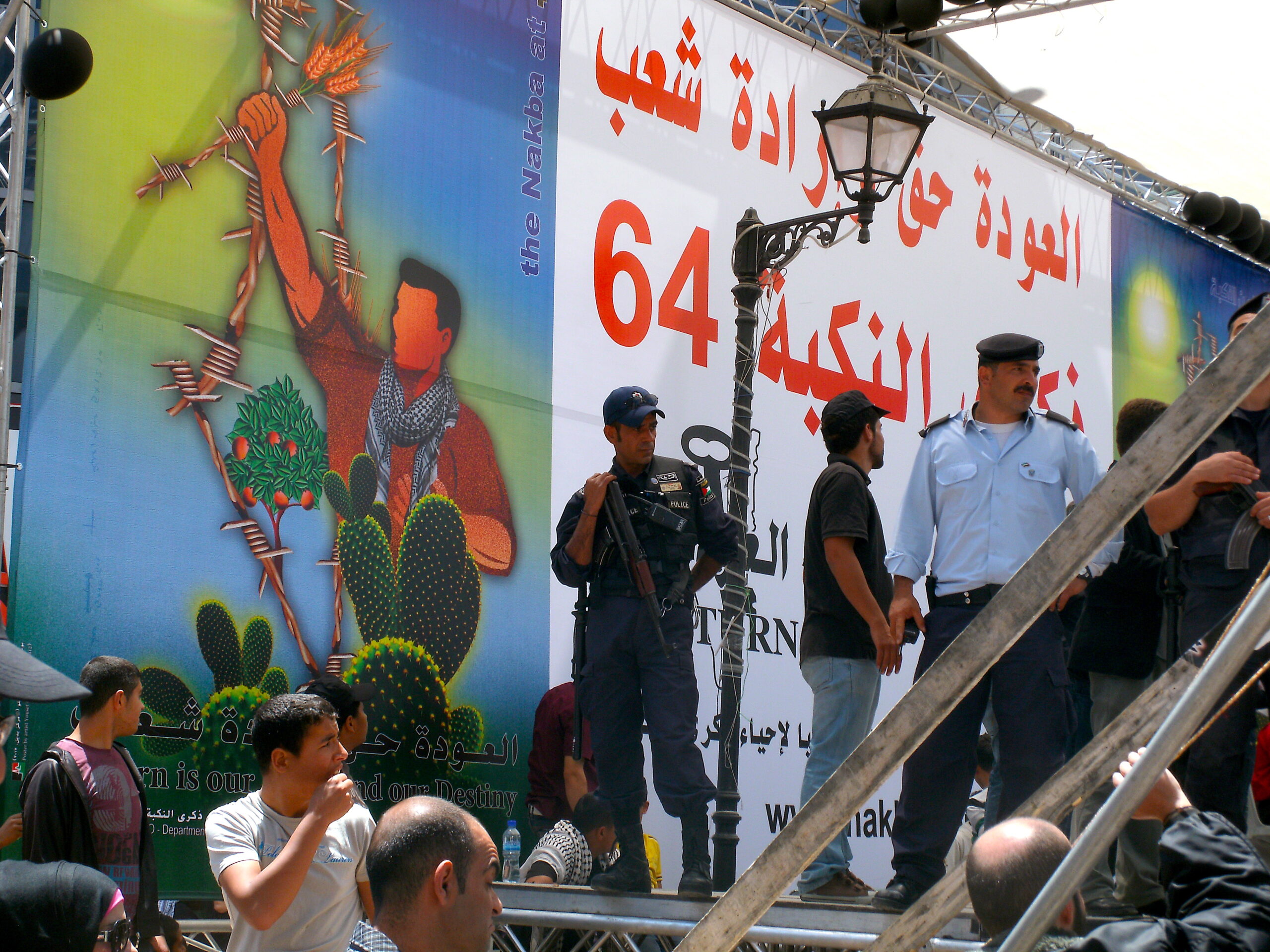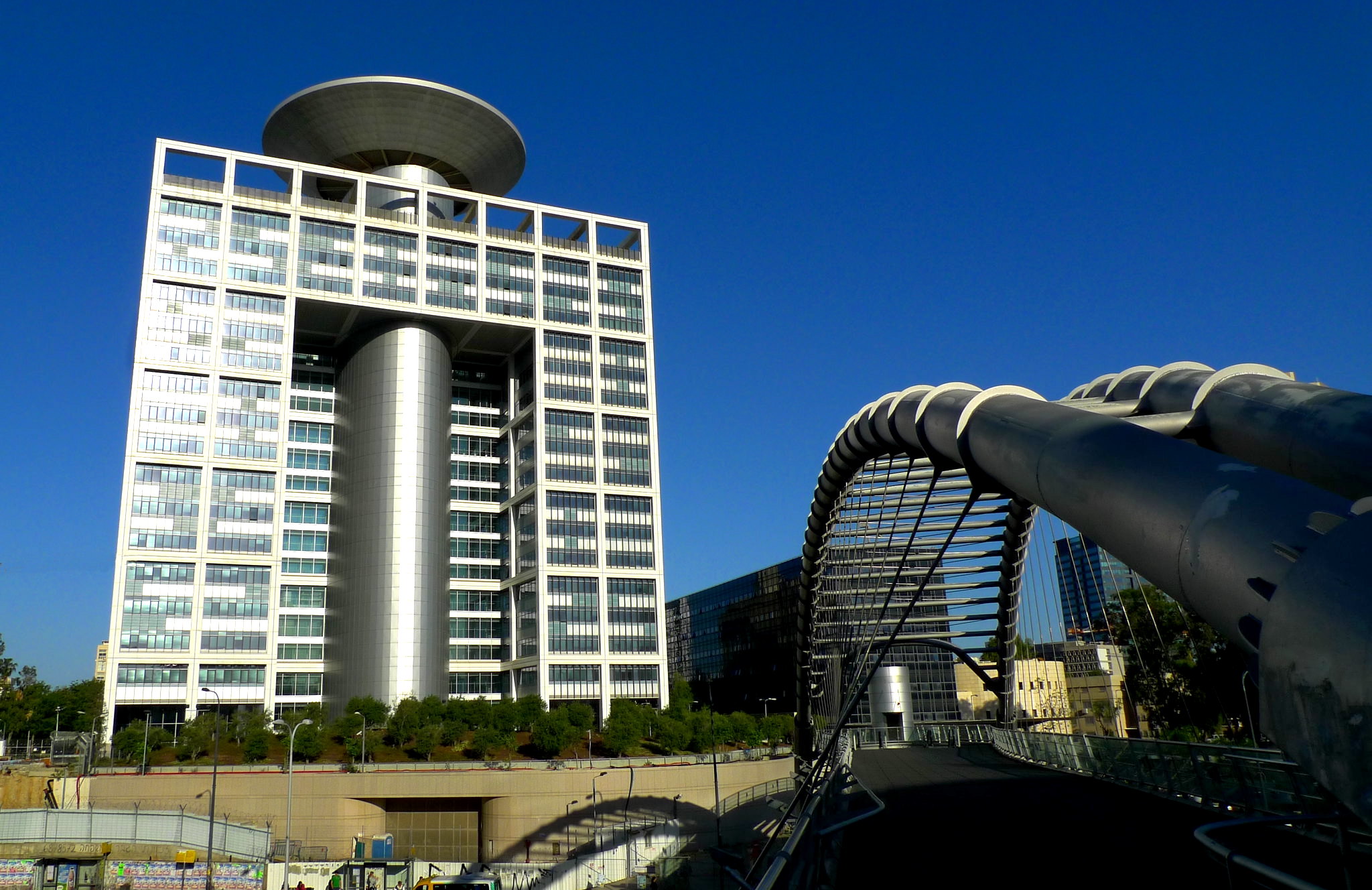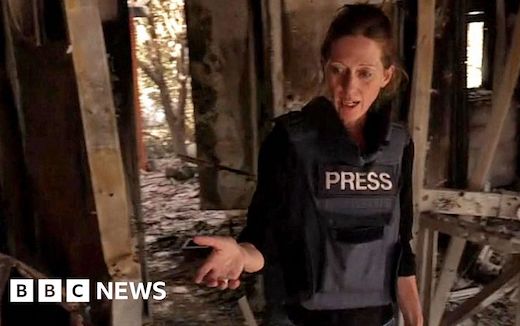Volume 28, Number 317 — Sunday, November 19, 2023
The War Machine Wants You to Condemn Hamas
The act of condemnation has been cynically weaponised, writes Jonathan Cook. The aim is not to show solidarity with Israelis. It’s to fan the flames of hatred to rationalise crimes against Palestinians.

Crowd progressing slowly towards the Erez Crossing, the main Israel-Gaza checkpoint, holding flags and signs and calling “End the Closure,” Jan. 26, 2008. (Orrling, Wikimedia Commons, CC BY-SA 3.0)
By Jonathan Cook
Jonathan-Cook.net

However counter-intuitive it may sound, there are three good grounds — ethical ones, at that — for refusing to join in the chorus of condemnation of Hamas’ actions on Oct. 7.
That isn’t the same as condoning what Hamas did. It is clear the group carried out war crimes that day — not least by attacking civilians and taking them as hostages.
But there is an important distinction to be made between recognising that crimes were committed and colluding in an act of condemnation that has been openly politicised, and continues to be politicised, to justify harming Palestinian civilians.
How so?
1. Those demanding condemnation are chiefly interested in imposing a consensus, and a dangerous one, that insists the atrocity clock started on Oct 7.
Such people want to wipe from the scorecard decades of atrocities by Israel towards Palestinians: ethnic cleansing, massacres, colonisation, siege, violent dispossession.
That isn’t the same as condoning what Hamas did. It is clear the group carried out war crimes that day — not least by attacking civilians and taking them as hostages.
But there is an important distinction to be made between recognising that crimes were committed and colluding in an act of condemnation that has been openly politicised, and continues to be politicised, to justify harming Palestinian civilians.
How so?
1. Those demanding condemnation are chiefly interested in imposing a consensus, and a dangerous one, that insists the atrocity clock started on Oct 7.
Such people want to wipe from the scorecard decades of atrocities by Israel towards Palestinians: ethnic cleansing, massacres, colonisation, siege, violent dispossession.
[Related: AS`AD AbuKHALIL: Do You Condemn Israel?]
And they can achieve their goal because of a stark narrative power imbalance on Israel-Palestine. In Western societies, pro-Israel sentiment is baked in, articulated constantly by our politicians and media. Anyone who condemns Hamas has no control whatsoever over the ends to which their condemnation will be put.
In short, condemnation of the kind demanded of everyone about Oct. 7 is not cost-free. It has been weaponised to drive out context; erase Palestinian suffering and Israeli oppression; and to simplify and distort history.
In short, condemnation of the kind demanded of everyone about Oct. 7 is not cost-free. It has been weaponised to drive out context; erase Palestinian suffering and Israeli oppression; and to simplify and distort history.

Police at Nakba Day demonstrations in Ramallah, Palestine, 2012. (Heinrich Böll Foundation Palestine, CC BY 2.0, Wikimedia Commons)
2. Those demanding condemnation want the condemnation not so the world can be made a better, safer place, but so their rationalisations for the continuing bombing campaign against Palestinian civilians in Gaza sound more plausible.
If Hamas’ actions need to be singled out for special condemnation (while Israel’s decades of crimes do not), then Hamas’ actions must be an order of magnitude worse than anything Israel has ever done.
A BBC journalist writes to director general Tim Davie about the corporation's dire coverage of Gaza:
'It appears the BBC is keeping a lot of highly significant and relevant information, including extensive evidence, expert opinion, and historical context, from the public.…
I wrote about some of that information the BBC's withholding from us here: jonathan-cook.net/blog/2023-11-0
Hamas can then be considered a special kind of depraved, inhuman, barbarous enemy. Which means, in turn, that there is both an especial urgency to eradicating Hamas and special conditions that justify Israel using especial cruelty to achieve that end.
In these circumstances, colluding in what amounts to a politicised act of condemnation is beyond unwise. It is not an act of solidarity with Israelis. It is not an expression of shared humanity. It is a tool for fanning the flames of hatred, for justifying ethnic cleansing and genocide against Palestinians.
3. Implicit in the demand for condemnation is an intention to strip Palestinians of the right to any kind of resistance to brutal military occupation by Israel.
In these circumstances, colluding in what amounts to a politicised act of condemnation is beyond unwise. It is not an act of solidarity with Israelis. It is not an expression of shared humanity. It is a tool for fanning the flames of hatred, for justifying ethnic cleansing and genocide against Palestinians.
3. Implicit in the demand for condemnation is an intention to strip Palestinians of the right to any kind of resistance to brutal military occupation by Israel.

IDF headquarters in Tel Aviv. (Justin LaBerge, Flickr,CC BY 2.0)
International law is clear on this point, even if Western politicians and the media are not. Palestinians have a right to resist.
There are plenty of things Hamas did on Oct. 7 that were legitimate under international law, such as attacking Israeli military bases that have been enforcing the siege of Gaza for 16 years. That is the main reason why such large numbers of Israeli soldiers died that day.
But the demand for condemnation intentionally seeks to blur the distinction between what Hamas had every legal right to do — attack the Israeli army — and what it did not have a right to do, which is kill civilians and take them hostage. Instead, all of the day’s events are painted as illegitimate, all of the day’s events are blended into one giant atrocity.
If that isn’t clear, watch the BBC and Sky News’ highly sympathetic reports about soldiers injured in Hamas’ attack.
The BBC’s Reeta Chakrabarti, for example, spent time with one soldier who chose to avenge his dead comrades by taking part in the invasion of Gaza. The report accorded him near-hero status. But the truth is that he and his comrades were stationed next to Gaza because they were helping to enforce the collective punishment of 2.3 million Palestinian civilians through a 16-year siege — a war crime.
Those actions made him and his comrades an entirely legitimate target for Hamas’ attack. But to point that out, to support international law, has been made taboo by Western politicians and media.
In all these ways, the demand for condemnation is designed to implant the idea that Palestinians must accept their fate: to be permanently enslaved by Israel’s settler-colonial project, to be permanently subjected to Israel’s apartheid rule, to be under a permanent siege that counts the minimum calories needed for survival, and to be bombed whenever the mood takes Israel.
Condemnation of Oct. 7 is what the West’s war machine wants from you. It is what ensures Palestinian children keep being killed, and that Palestinians never get their freedom or dignity.
Condemn if you wish, but understand that Palestinians will pay a heavy price for your words.
Jonathan Cook is an award-winning British journalist. He was based in Nazareth, Israel, for 20 years. He returned to the U.K. in 2021. He is the author of three books on the Israel-Palestine conflict: Blood and Religion: The Unmasking of the Jewish State (2006), Israel and the Clash of Civilisations: Iraq, Iran and the Plan to Remake the Middle East (2008) and Disappearing Palestine: Israel’s Experiments in Human Despair (2008). If you appreciate his articles, please consider subscribing to his Substack page or offering your financial support.


Palestinians can resist.
ReplyDeleteIsrael can hit back.
Crap writer!
ReplyDeleteThis article is part of the usual campaign to whitewash Hamas.
ReplyDeleteThe fact is if you condemn the deaths in Gaza but refuse to condemn the killings in Israel, you are either a hypocrite or anti-Jew, treating Israeli deaths as irrelevant.
Mfer, if u ignore causality then u fall into the loop of evil begets evil - a common Exihibitive human Behavourism.
DeleteWhat u have farted is just that oft-chanted spurious dogooders trying to play both sides of the evil.